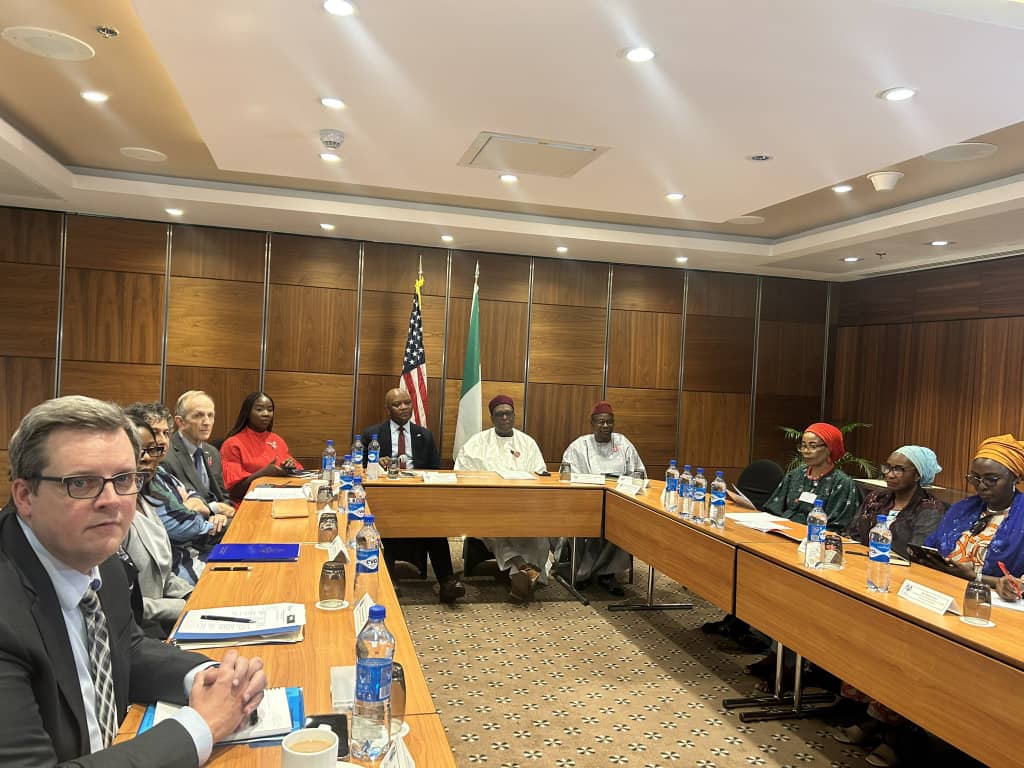The Federal Ministry of Health is partnering the United States (US) to halt the spread of Human Immunodeficiency Virus (HIV) and Acquired Immunodeficiency Syndrome (AIDS) among citizens, particularly in mothers and children.
The planned partnership was sealed yesterday after a meeting in Abuja, The joint meeting highlighted the steps to eradicate HIV/AIDS targeting 2030 and achieve sustainable Nigeria healthcare service delivery.
The outcome of the meeting focuses on sustainability and the 95-95-95 of people living with HIV knowing their status, those diagnosed receiving treatment, and on treatment achieving viral suppression goals.
Also,highlighting the progress as the fight against HIV /AIDs continues in Nigeria, the Coordinating Minister of Health and Social Welfare, Dr. Muhammad Pate, said the progress stems from political will, enhanced funding, and the integration of the Sector-Wide Approach (SWAp).
Other progress beams from initiatives such as the implementation of zero VAT on pharmaceuticals, primary healthcare strengthening, and job creation via local pharmaceutical manufacturing.
Acknowledging that 3 out of 4 Basic Healthcare Provision Fund (BHCPF) primary health centres now provide HIV care along with a robust adolescent and youth HIV strategy is in place.
To this end, the CDC Director, Dr. Mandy Cohen, lauded the progress witnessed in Nigeria as they aligned with the target globally.
Partners of the eradication process include the U.S. Embassy, Global Health Security and Diplomacy (GHSD)/PEPFAR, U.S. Department of Defence (DoD), United States Agency for International Development (USAID), Centres for Disease Control and Prevention (CDC), and Federal Ministry of Health and Social Welfare.
Others include the National Assembly HIV, TB, and Malaria Committee; the Federal Ministry of Finance and Economy; the Federal Ministry of Budget and Economic Planning; the Federal Ministry of Defence; and the Special Adviser to the President on Health.
Pate, advocates the inclusion and signing of Nigeria’s SWAp for effective outcomes with a deadline with the aim to reduce transmission rates between mother and child, establish adequate data systems, and prioritise sustainable funding.
Also, Dr. John Nkengasong, representing GHSD and PEPFAR, recommended sustainable funding, incorporating the SWAp approach, and improving the value chain in health sectors.
While representative of USAID, Dr. Atul Gawande hailed the efforts of Nigeria connecting HIV response to Universal Health Coverage (UHC) goals and primary health centres improvement.
Speaking further, the US government advised the Nigerian government to maintain momentum, protect vulnerable populations, and continue removing barriers in supply chains and data infrastructure.
Looking ahead, the meeting addresses the paediatric AIDS treatment gap, the development of a Technical Working Group (TWG) for a strategic action plan, accurate data for decision-making, and prioritises the recommendation of sustainable healthcare systems.



